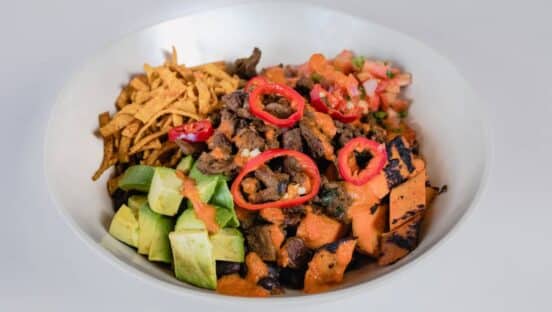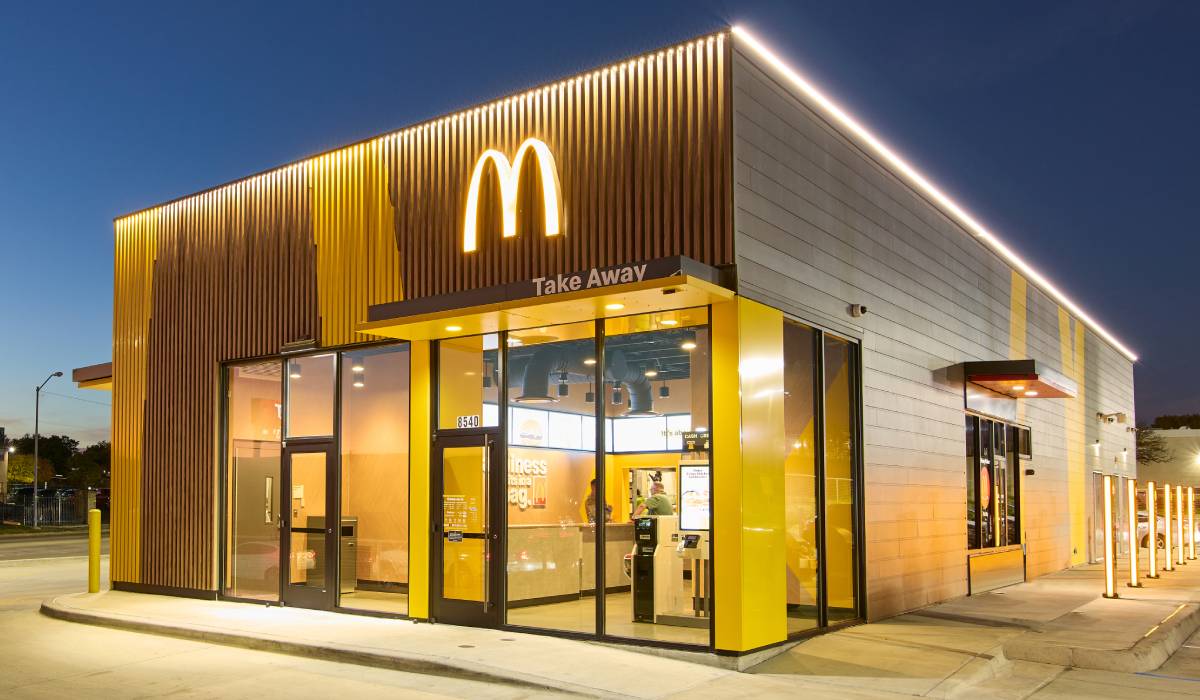Veggie Grill stood alone among plant-based restaurant chains when it launched in 2006, back when “vegan” was a four-letter word and most consumers had never heard of the term “plant-based.” It grew alongside the animal-free movement over the years and became one of the segment’s largest players, with a footprint spanning nearly 30 stores heading into 2023. Now, it’s exiting the year with just 17 remaining locations.
The company closed a dozen stores representing 40 percent of its unit count this summer, including locations of its secondary brand Stand Up Burgers. Co-founder and CEO T.K. Pillan says the move reflects the need for fast casuals to reassess their location strategy amid changing consumer behaviors coming out of the pandemic.
“We signed most of our leases pre-COVID when we had a large office lunch business,” he says. “That office lunch trade is a fraction of what it used to be, so a group of our restaurants weren’t worth moving forward with. Large dining rooms in office-centered markets just don’t make sense anymore. It’s about resizing the box economics based on this new world.”
The chain launched its first franchising initiative earlier this year, but those efforts have been put on hold until 2024 as it recalibrates. It plans to target more residential areas when it returns to growth, but for now, it’s refocusing on menu development amid increasing competition from rival brands as well as non-vegan restaurants that are adding more plant-based options.
Veggie Grill’s contraction isn’t reflective of softening demand for plant-based foods. Data from the Good Food Institute show sales of meat alternatives in restaurants reached $730 million last year, up 8 percent from 2021, while grocery sales—still the largest category by a long shot—remained flat at $1.4 billion. While roughly one in 10 consumers purchased plant-based meat at a foodservice establishment in 2022, the vast majority did so just once.
Expanding and improving on variety, functionality, and taste is the key to accelerating mainstream adoption, says Michael Salem president of Recreate Foods, an alt-meat maker specializing in chicken alternatives. Prior to joining the startup, he led culinary innovation at Burger King, where he played a key role in introducing the Impossible Whopper to the menu. That experience helped shape Recreate Foods’ “chef-driven” and “culinary-forward” approach to product development.
“When you’re dealing with a very tech-driven food trend, a lot of the mindset is about iterating quickly and evolving as you go,” Salem says. “That doesn’t always run consistent with the needs and wants of quick service. They need buttoned-up specifications, and they can’t have formula changes at the last minute. A lot of the science and technology that got us here is now table stakes. Everybody can create a passable analog, so you can’t rely on the novelty that was present in the category seven or eight years ago.”
Close enough is no longer good enough when it comes to fundamental traits like flavor and texture, he adds. That’s why Recreate Foods ensures there’s a sizable portion of meat eaters on every tasting panel.
“You need people stepping back and going, ‘Wait, this isn’t real animal protein?’” Salem says. “That’s the way to get a carnivore to convert one or two meals a week to a plant-based product. To me, that’s the desired end-state, because it’s just foolhardy to think you’re going to convince those people to never eat meat again.”
There’s also been a flurry of innovation around dairy-free ingredients, from plant-based cream cheese and butter to egg substitutes for cooking and baking. Eleni Dandelakis, R&D manager and franchise operations manager at Cinnaholic, has seen the quality and availability of those ingredients double since she joined the better-for-you bakery chain four years ago.
“When Cinnaholic first started, there was only one option when it came to both vegan butter and vegan cream cheese,” she says. “Now, we have multiple options and access to better prices. There’s a couple of really good egg replacers out there, but I’d like to see even more options. Most chocolates have dairy inside of them, so I think there’s room for expansion on that in the future, too.”
Cinnaholic specializes in vegan cinnamon rolls and offers a handful of additional dessert items, including cookies and brownies, and it’s been finding success with seasonal LTOs, like pumpkin bread, coffee cake, and jelly rolls.
The brand has been ramping up its franchising efforts, opening around a store per week in the back half of 2023. It’s on track to surpass 100 units by the end of the year.
“We’re the busiest that we’ve ever been,” Dandelakis says. “Franchising is a huge part of that, but ultimately it all comes back to the simplicity and quality of our menu, whereas there are some competitors out there that have pre-made or frozen products with preservatives and fillers.”
The brand has carved out a niche by catering not only to people who eat a plant-based diet but also to those who have dietary restrictions due to allergies, she adds.
“We have a lot of younger customers that are specifically wanting egg-free and dairy-free,” Dandelakis says. “I’m seeing more egg allergies these days, so finding a plant-based brand specifically for allergy reasons seems to be on the rise. And of course, there are a lot of older people that are becoming more health-focused but still want to have a nice little treat.”
Recent menu additions at Veggie Grill include several dishes featuring Yo-Egg, a vegan egg substitute, plus an expanded range of Beyond Steak options.
The fast casual was the first to serve Daiya Foods’ vegan cheese over a decade ago. It also was the first to introduce the Beyond Burger as well as Good Catch’s seafood alternatives. Pillan is approached by emerging suppliers every week and is always on the hunt for the “latest and greatest” plant-based innovations. He points to recent and upcoming launches like turkey made from fermented mycelium, bacon made from mushrooms, and cheese made from carrots as examples. At the same time, he sees a significant opportunity to expand Veggie Grill’s lineup of non-analog whole-food menu options. Think protein bowls starring ancient grains, power salads, and crispy cauliflower bites served with buffalo sauce.
“Over the past 10 years, people have started getting really nuanced in terms of what they want from their plant-based meals, so it’s important that we continue to innovate around those two core competencies,” Pillan says.











